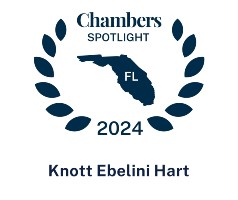News
Can Homeowner Associations Restrict an Owner’s Ability to use Property as a Vacation Rental?
Many Homeowners Associations attempt to restrict its owners’ ability to use their property as vacation rentals through business restrictions and lease pre-approval requirements. However, vacation rentals are not considered a “Business Purpose” under Florida Law. In Santa Monica Prop. Owners Ass’n, Inc. v. Acord, 219 So. 3d 111 (Fla. 1st DCA 2017), the Court found that a short term vacation rental was a residential use of property and did not violate restrictive covenants prohibiting the property from being used for business purposes, so long as the renters used the property for ordinary living purposes such as sleeping and eating. The duration of the rental did not change its use from residential to business. In addition, simply because an owner earns income from using the property as a short term vacation rental did not change the nature of the property’s use.
In addition, pre-approval leasing requirement and lease restrictions, may not apply to vacation rentals. While the question of whether a “vacation rental” is a “lease” has not been determined by Florida law, it is likely that a “lease” and “vacation rental” are not the same. Therefore, lease restrictions and lease pre-approval requirements may not apply to vacation rentals.
Leases likely refer to “rental agreements”. A “rental agreement” as defined by § 83.43, Fla. Stat. (2017), means “any written agreement, including amendments or addenda or oral agreements for a duration of less than one (1) year, providing the use and occupancy of the premises”. The term rental agreement also seems to refer to “rent” which is defined as “periodic payments due to the Landlord from the Tenant for occupancy under a rental agreement and any other payments due to the Landlord from the Tenant as may be designated as rent in a written rental agreement”. Vacation rentals are distinguishable because vacation rentals typically do not require “periodic payments” such as rent, and to the extent that use and occupancy is provided to a vacation renter, it is highly limited.
In addition, a Landlord/Tenant relationship (which applies to rental agreement/lease, and rent) is not created in the scenario related to vacation rentals. Instead, a vacation rental creates a “transient occupancy” which is defined by § 83.43, Fla. Stat. (2017), to mean “occupancy when it is the intention of the parties that the occupancy will be temporary”. Therefore, it is likely that a vacation rental is considered a transient occupancy rather than a lease/rental agreement.
In addition, restrictions on vacation rentals are disfavored by the Florida Legislature. § 509.032(7)(b), Fla. Stat. (2017) prevents local governments from prohibiting vacation rentals. Specifically, § 509.032(7)(b), Fla. Stat. (2017), provides: “A local law, ordinance, or regulation may not prohibit vacation rentals or regulate the duration or frequency of rental of vacation rentals…”
- 509.242(1)(c), Fla. Stat. (2017) defines “vacation rental” as:
any unit or group of units in a condominium or cooperative or any individually or collectively owned single-family, two-family, three-family, or four-family house or dwelling unit that is also a transient public lodging establishment but that is not a timeshare project.
Therefore, because the Florida Legislature disfavors prohibiting vacation rentals in the government context, there is some likelihood that the Florida Courts and Florida Legislature would also disfavor homeowner associations prohibiting vacation rentals.
This idea is supported by Moss v. Inverness Highlands S. & W. Civic Ass’n, Inc., 521 So. 2d 359 (Fla. 5th DCA 1988). In Moss a person owned a single family residence which was burdened by a restrictive covenant restricting its use for residential purposes only. The owner opened her home to elderly people who paid for their room and board. The Court found that this was not a violation of the restrictive covenant.
Florida Courts agree that restrictive covenants must be clear on their face. Therefore, if an Association wants to prohibit vacation rentals, it should have a specific declaration that specifically prohibits vacation rentals. However, the Association should be aware of the prohibition disfavored by the Florida Legislature, which applies to government entities and could later be expanded to apply to Associations. Further, the Associations prohibition of vacation rentals could be deemed a violation of the owner’s right to use and enjoy their property. Given the wide use of vacation rentals, Owners and Associations should stay abreast of case law and statutes related to this topic.
This article was researched and drafted by Associate Attorney Kristie Scott.
April 24, 2018 Share This






